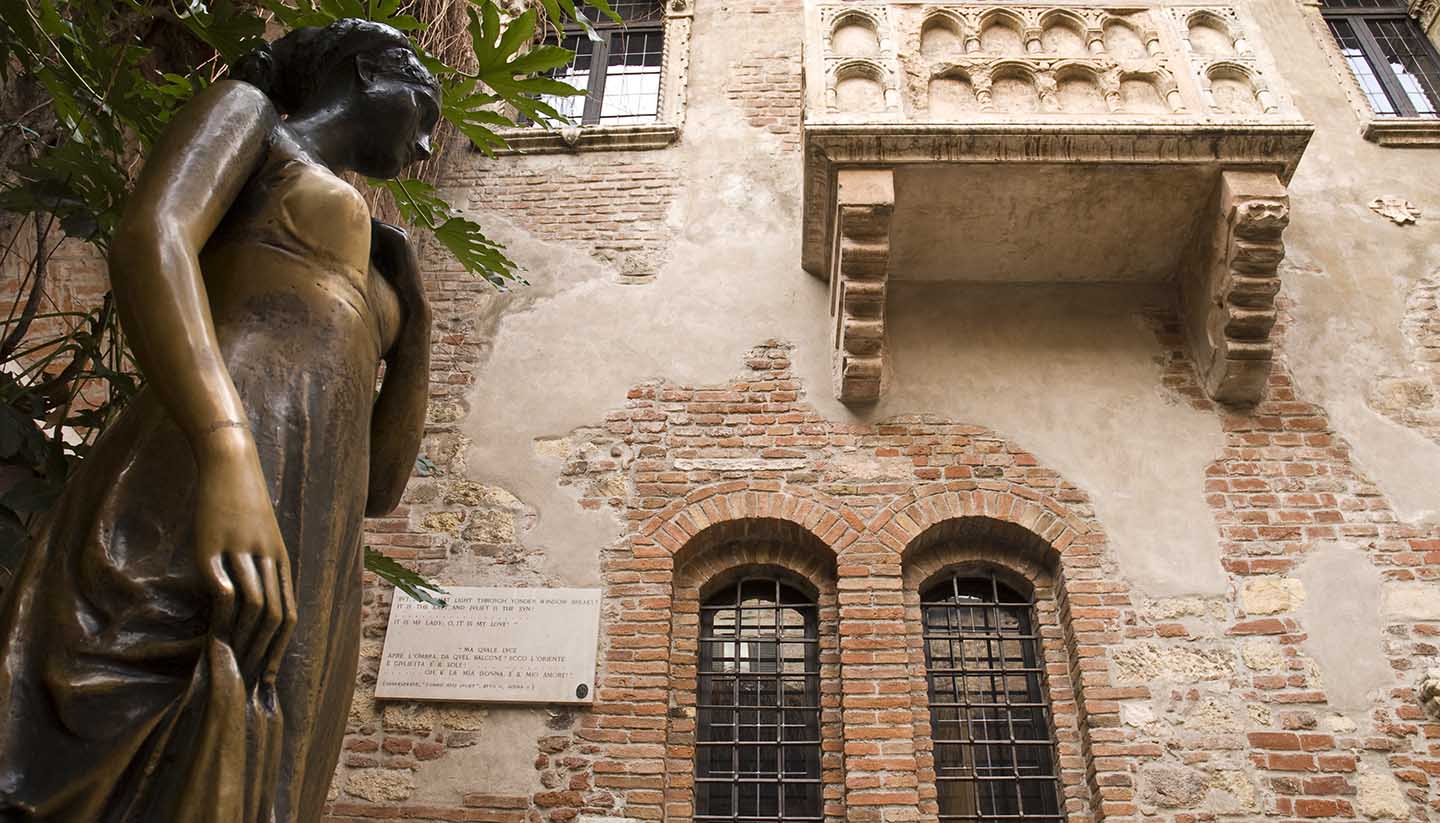Verona History
With records of a settlement existing at least 550BC, Verona became a Roman colony in the 1st century BC. Thanks to its location straddling the main east-west and north-south trade routes, it was a key base for the empire, which built impressive gateways and a grand amphitheatre.
The city’s prime location was not lost on other powerful regional players and with the fall of the Roman Empire, Verona was conquered by Ostrogoths, Lombards and Charlemagne. Finally, in the 13th century, it came under the control of the Scaligeri dynasty.
They may have been tyrants, but the family fortified Verona and extended the city’s influence to Vincenza, Padua and Treviso. They were also great patrons of the arts. Dante, Petrarch and Giotto all thrived here in 13th and 14th centuries, and the city experienced a mini golden era of peace and prosperity.
But family feuds and fratricides eventually took their toll, and by the 15th century, Verona was under Venetian rule. Under them, the great city gates of Porta Nuova and the Porta Palio were constructed, as was Piazza Brà. Venice ruled the city until Napoleon’s armies swept through the peninsula in 1797. Then Verona was passed as a war trophy to Austria and it only rid itself of foreign domination during the unification of Italy in the 1860s.
In 1882, a terrible flood destroyed much of the historic centre. The city’s iconic high walls were thus erected to protect it. However, they weren’t strong enough to repel the bombs of the Allies in WWII, which again damaged much of the city. 40% of the buildings were wrecked, as well as all the bridges which were destroyed by the retreating Germans. Reconstruction was intensive and prolonged, and restoration took place where it could. In the end, enough of Verona survived for it to be named a UNESCO World Heritage site in 2000.
Did you know?
• Built in AD30, much of the original Verona Arena is still preserved. However, an earthquake in 1117 completely destroyed the amphitheatre’s outer ring.
• Rubbing the right breast of a Juliet statue at Juliet’s House is thought to bring good fortune for those unlucky in love. Unfortunately for the forlorn, the bronze sculpture was removed and replaced in 2014 after the caressing caused too much damage.
• Verona was part of Austrian-ruled Venetia until 1866, when the region became one of the last to join the Kingdom of Italy.


